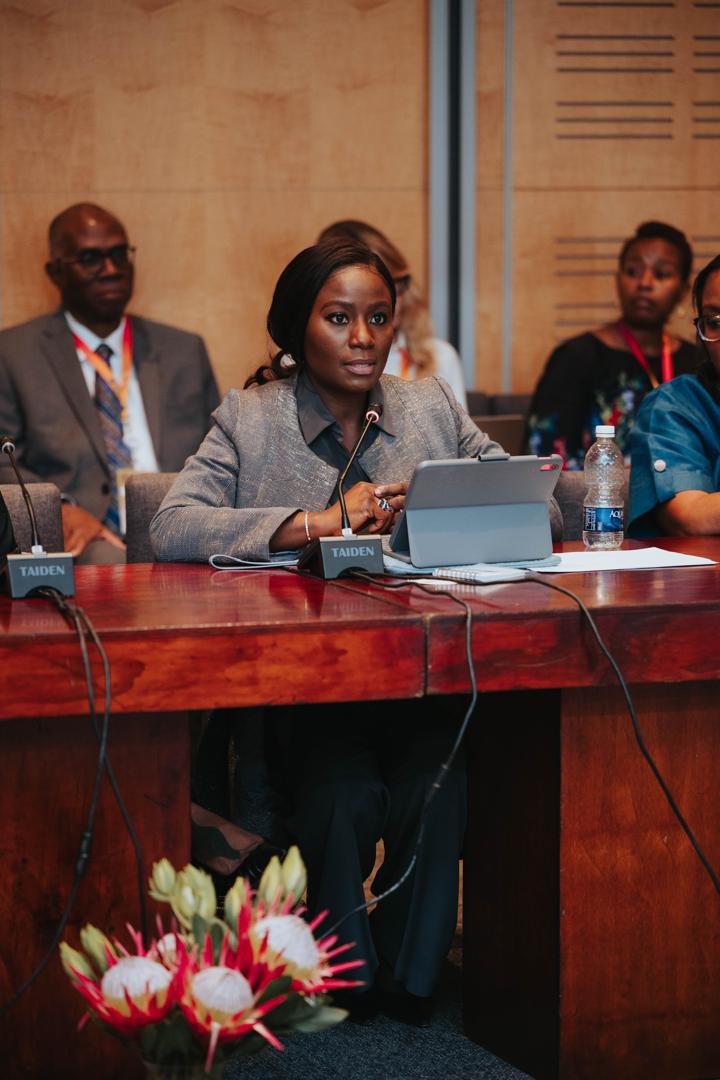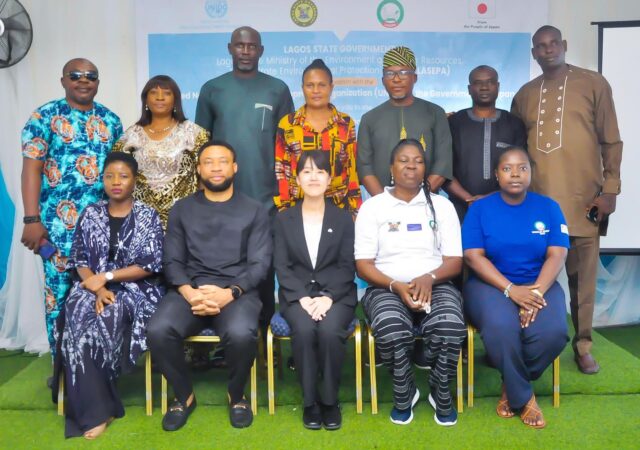Keynote Address At the African Energy Week (AEW) 2024
At the 2024 African Energy Week in Cape Town, South Africa, Olu Arowolo Verheijen, Special Adviser on Energy to the President of Nigeria, delivered a compelling address on the future of energy and the importance of shaping the workforce for tomorrow.
Her speech highlighted the critical role that energy plays in Africa’s development and the need for a diverse, skilled workforce to drive progress in the energy sector.
Olu Verheijen acknowledged the importance of energy access for Africa’s future, noting that despite the continent’s vast resources, over 75% of the population still lacks sufficient energy.
She emphasized that energy should no longer be a barrier to development but rather a catalyst for industrialization. In this context, she argued that a productive and diverse energy workforce is essential for realizing Africa’s potential.
Verheijen also touched on the rapidly changing energy landscape, explaining that the future will require not only significant investments in energy infrastructure but also a broad range of talent and expertise to navigate the evolving challenges.
The Energy Expert emphasized that Africa’s future is in the hands of its people, and the continent must take proactive steps to balance energy security, affordability, and sustainability.
One of the key points Verheijen made was the need to look beyond traditional sources of talent and bring in new perspectives, particularly from women and young people. These groups, she argued, are crucial for developing the innovative solutions needed to address Africa’s energy challenges. She noted that while attracting women into STEM fields and the energy sector is important, it is equally vital to ensure their retention and advancement. Sponsorship, she argued, is the key to helping women break through the mid-level ranks and reach executive positions.
Verheijen shared a personal story to illustrate this point, recounting how she was appointed as Special Adviser on Energy by President Bola Ahmed Tinubu of Nigeria in May 2023. She explained that this decision was a bold move by the president, who chose a young woman with a global perspective and a background in energy and development. This appointment, Verheijen noted, was part of a broader vision for reforming Nigeria’s energy sector, and it represented a departure from the traditional political appointments that have historically dominated the sector.
She reflected on how President Tinubu, who had previously spearheaded transformative reforms as governor of Lagos State, took a risk by betting on her leadership. Despite being a woman in a sector historically dominated by men, Verheijen was empowered to lead a team of disruptors tasked with reforming Nigeria’s oil, gas, and power sectors. She credited this opportunity to the president’s belief in her capabilities and his willingness to support a diverse team.
For Verheijen, her appointment is not just about personal success but about paving the way for other women and young people to take on leadership roles. She highlighted how sponsorship—rather than mere inclusion—can make all the difference in helping women ascend to positions of power. According to Verheijen, it is not a question of women lacking the qualifications or abilities to lead but rather the lack of equal access to sponsorship and opportunities.
Verheijen called on African leaders to follow President Tinubu’s example and actively sponsor women and young people into leadership roles. She stressed that this is essential not only for advancing gender equality but also for ensuring that Africa’s energy sector—and by extension, its broader development—reaches its full potential.
In the closing part of her address, Verheijen outlined some of the achievements of her team in the past year. These include clarifying regulatory roles to create a more favorable environment for investment, introducing reforms to reduce operational costs and project timelines, and establishing new fiscal incentives for non-associated gas and deep offshore oil and gas exploration. These steps have already begun to yield results, with over $1 billion in investments unlocked and major projects, including a multibillion-dollar deepwater exploration project, set to move forward.
Verheijen expressed optimism about Nigeria’s energy future, noting that the country is well-positioned to become a global leader in both fossil fuels and renewable energy. She emphasized that the country is no longer constrained by outdated approaches and is instead focused on innovation, openness, and bold action.
She concluded by expressing gratitude to President Tinubu for his trust and support and vowed to continue working hard to ensure that Nigeria’s energy sector becomes one of the most reformed and dynamic in Africa. Verheijen also expressed her commitment to paying it forward, ensuring that young women in Africa have the same opportunities to succeed and lead. She called for an aggressive effort to close the gender gaps that have historically hindered progress and stated that empowering women is essential for building the Africa of the future.
Verheijen’s message was clear: the future of Africa’s energy sector—and indeed, its overall development—depends on a diverse, talented, and empowered workforce. By investing in women and young people, African leaders can help unlock the continent’s vast potential and create a brighter, more sustainable future for all.








Dead pent subject material, Really enjoyed studying.
My brother recommended I would possibly like this website. He was once entirely right. This put up truly made my day. You cann’t believe simply how a lot time I had spent for this information! Thank you!
hi!,I like your writing very much! share we communicate more about your post on AOL? I need a specialist on this area to solve my problem. Maybe that’s you! Looking forward to see you.